Timeline Treasures
Our timeline starts in 1681, with the creation of Bogd Khan Mountain Protected Area in Mongolia, which symbolizes the importance of conserving nature. Later, Alexander von Humboldt taught the Western World to re-appreciate nature and laid important foundations for biogeography nature interpretation and inspired scientists like Darwin and naturalists like Thoreau and Muir. The last year of the timeline is 2021, the start of the UN Decade on Ecosystem Restoration. Our timeline is not comprehensive but lists what we consider majorhttps://www.decadeonrestoration.org/ international and inspiring milestones for ecotourism, in areas such as conservation, protected areas, human rights, (eco)tourism development, certification, ecolodges and best practices. Some key milestones per region are also listed. We hope that GEN regional groups such as AEN, LACEN, EEN, NAEN, AFEN and ecotourism practitioners/academics will find time to construct timelines for their regions and countries thus enriching our knowledge. We have made new discoveries while constructing this timeline, which has had valuable input from GEN founders and hope to improve as we are alerted to new information.
1681: Bogd Khan Mountain
Protected Area: The local community initially protected this mountain and then in 1783, the local Mongolian government of the Qing Dynasty, legally declared it a protected site for its beauty.
1808: Alexander von Humboldt publishes “Aspects of nature”
Naturalist Explorer and “Interpretation Pioneer”: Humboldt inspired many scientists and naturalists and also appealed to the public. Holistic view of nature and culture.
1864: George Marsh publishes “Man and Nature”
Conservation Thinker: Marsh made the forceful case that man is on earth to borrow its natural resources and should always be responsible in how he proceeds.
1872: Yellowstone National Park
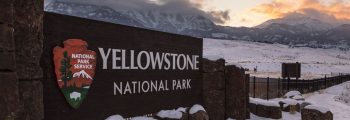
Protected Area: First “modern” National Park, inspiring other countries to follow suit.
1879: Australia creates Royal National Park
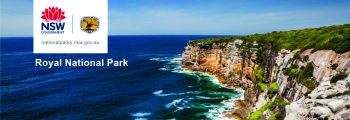
Protected Area: The other states followed New South Wales’s lead. Within 37 years, each of Australia’s states had a national park.
1892: Sierra Club founded by John Muir

Conservation NGO: One of the first large-scale environmental preservation organizations in the world.
1901: Sierra Club “Outing”
Nature Tour: A precursor to Ecotourism.
1909: Sweden creates the first National Parks in Europe
Protected Area: 9 were created in that year. Stora Sjöfallet near the Arctic Circle was the largest at that time. Today it is Padjelanta. Both parks are now part of the WHS Laponia.
1922: BirdLife International (formerly ICPB -International Council for Bird Preservation-)

Conservation NGO: Global partnership of conservation organisations that strives to conserve birds, their habitats, and global biodiversity, working with people towards sustainability in the use of natural resources.
1925: Virunga National Park first in Africa

Protected Area: A World Heritage Site since 1979, it is one of the most biodiverse parts of Africa and home to endangered mountain gorillas.
1934: Japan creates the first National Parks in Asia

Protected Area: Setonaikai, Unzen and Kirishima were the first three, followed by 5 more later in the year. The public park concept dates from 1873.
1934: Argentina creates first National Park in Latin America – Nahuel Huapi

Protected Area: Protects 3 types of north Patagonian Andean Zone plus Valdivian Rainforest.
1945: UNESCO founded

World Heritage Sites: Aim to contribute to the building of peace, the eradication of poverty, sustainable development and intercultural dialogue through education, the sciences, culture, communication and information.
1948: IUCN (then IUPN) founded as initiative of UNESCO
Conservation: First international organisation focusing on the entire spectrum of nature conservation.
1948: UN Declaration of Human Rights (UDHR)

Human Rights: Sets out for the first time fundamental human rights and freedoms.
1949: Nsefu Wildlife Reserve in Zambia – Birth of Ecotourism

Community-Based Tourism: Chief Nsefu of the Kunda people, encouraged by Norman Carr creates a no-hunting, photographic and walking safari protected area on tribal lands.
1950: Nsefu Camp in Zambia: Community-Owned EcoCamp

Community-based EcoCamp: A tourist camp for photographic walking safaris is set up in Nsefu Wildlife Reserve. First public-private partnership in nature-based tourism. This camp is the first ecolodge in the world and is still functioning.
1954: Association of Interpretive Naturalists
Interpretation: Became NAI in 1988.
1957: Freeman Tilden publishes “Interpreting our Heritage”
Interpretation: Through interpretation, understanding; through understanding, appreciation; through appreciation, protection.
1957: ILO – International Labour Organization – C-107
Indigenous Rights: Indigenous and Tribal Populations Convention. Later updated in 1989 as C-169.
1962: Rachel Carson publishes “Silent Spring”
Environmental Concerns: The overarching theme of Silent Spring is the powerful -and often negative- effect humans have on the natural world.
1964: Wagar publishes “The Carrying Capacity of Wild Lands for Recreation” in Forest Science
Carrying Capacity: Wagar revisited the subject in 1974. Later models like LAC (Limits of Acceptable Change), VERP (Visitor Experience and Resource Protection) were developed.
1965: First use of the terminology “ecotours “and “ecotourism” by Claus Dieter Hetzer
Nature Tour: “Nick”Hetzer organized ecotours in Yucatan.
1972: Club of Rome publishes “Limits to Growth”
Sustainability: Using computer simulation it analyzes 3 scenarios, two of which lead to overshoot and collapse in the 21st century. Models revisited in 2004.
1973: Economist E. F. Schumacher publishes “Small is Beautiful”
Sustainability: Natural resources are not expendable income, but capital. Nature’s resistance to pollution is limited Introduces the concept of “enoughness”.
1978: Cofán launch first community-based ecotourism project in Latin America
Community-based: The Cofán are among the oldest surviving indigenous cultures in the Ecuadorian Amazon.
1983: Hector Ceballos-Lascurain creates first definition of “ecotourism”
Ecotourism: “Ecotourism is that tourism that involves travelling to relatively undisturbed natural areas with the specific object of studying, admiring and enjoying the scenery and its wild plants and animals, as well as any existing cultural aspects (both past and present) found in these areas.” It was revised in 1993 and this definition was
1983: Wilderness Safaris

Ecotourism Operator: Pioneer company founded on ecotourism principles and business model. Since 2018, majority of shares are held by The Rise Fund and African Wildlife Holdings, both of which are backed by social impact investors. Operates several ecolodges.
1988: Megan Epler Wood produces “The Environmental Tourist” for PBS
Ecotourist: Produced for broadcast on PBS’s World of Audubon, The Environmental Tourist reviews the evolution of ecotourism and how it is developing in Kenya, Belize, and Montana as a tool for conservation of natural resources and if it can sustain the well-being of local people.
1990: The Ecotourism Society (TES) created
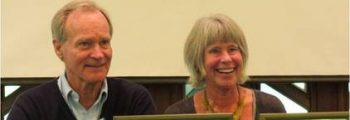
Ecotourism NGO: Megan Epler Wood co- founds TES with Dr. David Western, who becomes the first President. Later becomes “TIES”, adding the ‘I’ for ‘International’. In 2015, its non-profit status in the US was revoked. The brand name continues to be used, but it is not clear if it is an organization any
1991: Formation of Ecotourism Association of the Indo-Pacific Region in Australia
Ecotourism NGO: Since 2002, renamed as “Ecotourism Australia”.
1992: British Airways launches the “Tourism for Tomorrow Awards”

Awards: Recognises the best practice in sustainable tourism, globally. Since 2003 organized by WTTC.
1992: Rio 92

Event: First Earth Summit in Rio de Janeiro, 3 to 14 June in 1992.
1993: Kapawi Ecolodge Project – Ecuador
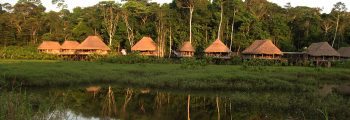
Ecolodge: Lodge opens in 1996 in close partnership with the Achuar Indigenous Nation. Since 2008 they have 100% ownership of the lodge.
1993: Ecotourism: A Guide for Planners and Managers
Book: First book on how to do ecotourism published by TES.
1993: EcoBrasil – Brazilian Ecotourism Society
Ecotourism NGO: First in Latin America.
1994: First Ecolodge Forum
Event: Held at Maho Bay, organized by TES.
1995: Il Ngwesi Eco-Lodge – Kenya
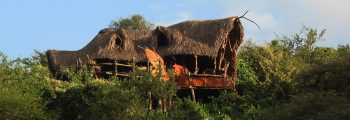
Ecolodge: Planning begins on the first 100% indigenous owned, managed and operated upmarket ecolodge in the world.
1996: National Ecotourism Accreditation Program (NEAP) – Australia
Certification: First international ecotourism certification program. Since 2003, renamed ECO Certification Australia.
1996: Ecotourism Society of Kenya (ESOK)
Ecotourism NGO: Since 2006, renamed “Ecotourism Kenya”.
1996: Swedish Ecotourism Association
Ecotourism NGO: Now called Naturturismforetagen (Nature Tourism Companies).
1996: Cree Village Ecolodge Project Starts – Canada

Ecolodge: Goal to advance the development of indigenous tourism. Opens in 2000.
1997: MESCOT Initiative of the Batu Puteh Community – Indonesia
Community-based Ecotourism: Protecting the forest habitat, wildlife and biodiversity of the Lower Kinabatangan while preserving the livelihood of the local population. Ecotourism Co-operative (KOPEL), eco-tourism community based cooperative created in 2003. Tungog Ecocamp opens in 2009.
1997: Robert Costanza et al. publish “The value of the world’s ecosystem services and natural capital” in Nature
Ecological Economics: Costanza and his colleagues believe that putting a price on the services ecosystems provide alerts us to the true costs of the destruction of the biosphere.
1998: Costa Rican Certification for Sustainable Tourism (CST)
Certification: Official Launch of the first Sustainable Tourism Certification Programme in Latin America.
2000: Tour Operators Initiative (TOI) launched

Responsible Tourism: Developed by and for tour operators with the support of the United Nations Environment Programme (UNEP), the United Nations Educational, Scientific and Cultural Organisation (UNESCO) and the World Tourism Organisation (WTO/OMT). Merges with GSTC in 2014.
2000: Mohonk Agreement
Certification: Framework and principles for the certification of ecotourism and sustainable tourism.
2002: International Year of Ecotourism (IYE)

Event: World Ecotourism Summit held in Quebec.
2002: Nature Best Sweden
Certification: First sustainability label for nature-based experiences in Europe created by the Swedish Ecotourism Association and Visit Sweden.
2002: Eco-rating Certification Scheme – Kenya
Certification: Launched by Ecotourism Kenya, it is the first sustainable tourism certification program in Africa.
2003: Sustainable Tourism Certification Network of the Americas (STCNA)
Certification: Network of regional tourism certification organizations start discussing certification.
2006: World Travel Market (WTM) launches first World Responsible Tourism Day

Event: Unites the global travel industry, companies, organisations and professionals alike, to share sustainable practices and ethical methods and drive the responsible tourism agenda.
2007: Partnership for Global Sustainable Tourism Criteria
Certification: A coalition of 32 partners, initiated by the Rainforest Alliance, the United Nations Environment Programme (UNEP), the United Nations Foundation, and the United Nations World Tourism Organization (UNWTO). This was the basis for the GSTC.
2008: Chandra de Silva receives TIES inaugural Lifetime Achievement Award
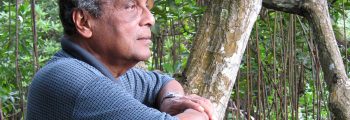
Ecotourism: Pioneer of Ecotourism and Ecolodges in Sri Lanka.
2008: The launch of Climate Action Certification by Ecotourism Australia

Climate Change: The World’s first tourism related certification program to specifically tackle the issue of climate change.
2010: Global Sustainable Tourism Council
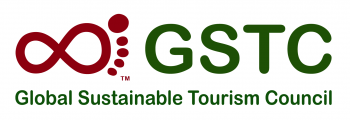
Certification: Merger of Partnership for Global Sustainable Tourism Criteria and the Sustainable Tourism Stewardship Council (STSC), in 2014 includes TOI.
2015: Sustainable Development Goals (SDGs)

Sustainable Tourism: 17 SDGs were adopted at the UN Sustainable Development Summit in New York. The build on decades of work started at Rio 92.
2015: Birth of Global Ecotourism Network (GEN)

Ecotourism NGO: TIES Advisory Board resigns and forms a new NGO.
2016: Asian Ecotourism Network
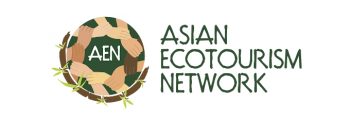
Regional GEN Network: First regional ecotourism network linked to GEN. Currently LACEN, EEN, NAEN, AFEN are starting up.
2016: Minimum atmospheric CO2 concentration passes 400 ppm
Climate Change: This was predicted.
2017: UN International Year of Sustainable Tourism

Sustainable Tourism: Campaign #TravelEnjoyRespect encouraged tourists to be “an agent of change” and shared helpful tips on how anyone can become a more responsible traveller.
2017: SUBIC Ecotourism Forum Philippines
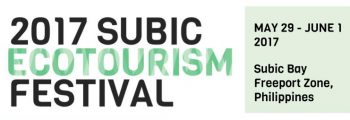
Event: First international GEN Conference and the only Ecotourism Forum during International Year of Sustainable Tourism.
2018: WWF Living Planet Report
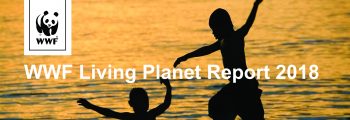
Conservation: Shows population sizes of wildlife decreased by 60% globally between 1970 and 2014.
2019: ISO 21401, Tourism and related services – Sustainability management system for accommodation establishments published
Certification: Requirements specifiy the environmental, social and economic requirements for implementing a sustainability management system in tourist accommodation.
2020: COVID-19

Global Crisis: The global spread of a contagious virus creates a unprecedented health, social and economic crisis and an opportunity for sustainable development including tourism.
2021: UN Decade on Ecosystem Restoration begins
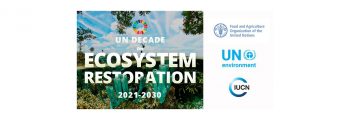
Climate Change: Aims to massively scale up the restoration of degraded and destroyed ecosystems as a proven measure to fight the climate crisis and enhance food security, water supply and biodiversity.
